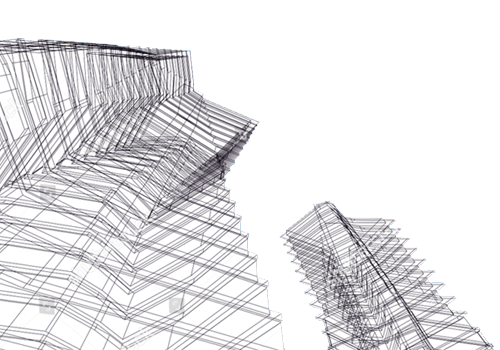Using Etabs For Heritage Building Conservation
ETABS uses a finite element method to analyse structural components such as beams, columns, walls, slabs, and shear walls. It can analyse both simple and complex structures and can model various loading conditions such as gravity loads, lateral loads, and wind loads. Heritage buildings are important cultural and architectural assets that require careful preservation. However, maintaining the structural integrity of these buildings while preserving their original architectural features can be a challenging task.
CSI ETABS, Building Analysis andDesign Software are known for its advanced analysis capabilities, ease of use, and
ability to generate detailed reports and construction documents. The software
is used by various professionals in the engineering and construction
industries, including structural engineers, architects, contractors, and
building owners.
In this blog, we will discuss how ETABS can be used to address these challenges in heritage building conservation.
● Analysing Existing Structures
One of the key challenges in heritage building
conservation is analysing the existing structures to identify potential
deficiencies. ETABS can be used to model the existing structural system of a
heritage building and evaluate its strength and stability. This analysis can
help identify potential structural deficiencies, such as inadequate lateral
stability or insufficient capacity to resist earthquake forces.
● Developing Strengthening Strategies
Based on the analysis results, engineers can develop
appropriate strengthening strategies while minimising the impact on the
original architectural features. ETABS can model different strengthening
strategies and evaluate their performance, helping engineers select the most
appropriate strategy that meets the structural and conservation objectives.
● Evaluating Non-Structural Elements
In addition to the structural elements, non-structural
elements such as decorative plasterwork or stained glass windows are important
features of heritage buildings. ETABS can be used to evaluate the performance
of these elements under dynamic loading conditions, helping engineers develop
appropriate mitigation measures to protect them.
● Optimising Conservation Strategies
Using ETABS, engineers can model different
conservation strategies and evaluate their impact on the building's appearance
and historical significance. This helps optimise the conservation strategies,
ensuring the structural and conservation objectives are met while minimising
the impact on the building's historical and cultural significance.
● Communicating with Stakeholders
Heritage building conservation involves multiple stakeholders, including owners, preservation societies, and government agencies. ETABS provides advanced visualisation tools that can be used to communicate the analysis results to stakeholders. Using ETABS visualisation tools, engineers can create realistic 3D models of the building and demonstrate the impact of different conservation strategies on the building's appearance and historical significance.
CSI's
software products are widely used in the engineering and construction
industries worldwide. Its primary focus is on developing software for
structural and earthquake engineering.
Conclusion
Heritage building conservation requires a holistic approach that considers both the structural and non-structural elements. ETABS can be a valuable tool for engineers and architects working on heritage building conservation projects. Using ETABS to analyse the existing structures, develop appropriate strengthening strategies, evaluate non-structural elements, optimise conservation strategies, and communicate with stakeholders, engineers can ensure that these important cultural and architectural assets are preserved for future generations.
.png)


Comments
Post a Comment